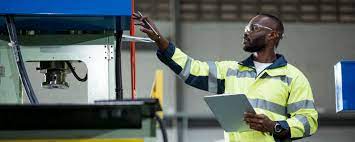produce comprehensive reports. In addition, they perform construction progress assessments as well as pre-lease inspections.
They inspect both interior and exterior factors of properties, such as walls, fire safety hazards, windows and kitchen facilities. By doing this, they can bring properties up to code quickly or identify potential issues before they become costly in the future.
Structural
Commercial building inspectors conduct comprehensive structural inspections for various commercial properties, such as restaurants, warehouses, hotels, office buildings and industrial sites. Their purpose is to make sure that each property meets standards that will enable it to support a business’ operations effectively.
Commercial inspections cover more than just the structure itself; they assess major systems like plumbing, electrical and HVAC. All must function smoothly in order for a building to function safely and provide its occupants with a comfortable living environment.
An inspection of commercial properties involves an intensive process that includes visual examination of both exterior and interior features as well as review of associated documents like plans, surveys, and environmental analyses.
Electrical
Inspectors in commercial properties conduct inspections to compare electrical wiring against standards outlined by the National Electric Code and to make sure equipment is grounded and bonded accordingly. Ungrounded equipment or improper wiring pose serious safety concerns that can result in fires, injuries and other costly consequences for building occupants.
Commercial property inspections often include exterior health checks for added peace of mind. This involves not only inspecting the outer walls, but also landscaping, roof covering, parking lots or structures on the property.
Commercial building inspectors also ensure all emergency exits in a business are functioning as they should – an essential safety measure that ensures occupants can evacuate in case of an emergency or disaster. They will also assess for ADA compliance – an especially crucial consideration in businesses with many employees.
Mechanical
Commercial building inspectors with expertise in facilities management, engineering or architecture are qualified to conduct mechanical inspections on commercial properties. These individuals will assess HVAC, electrical systems and structural integrity systems to make sure that each property meets all its necessary criteria for use.
Interior spaces will also be evaluated, to make sure they adhere to local building codes and highlight any safety-related risks or hazards. They will inspect bathrooms, kitchens, offices and other spaces to make sure everything complies with regulations.
An inspector will also conduct an exterior health check on a commercial property. This involves looking at parking lots or structures, landscaping and roofing as part of their inspection, using expert knowledge from roofing or construction contractors as needed to fully examine its condition and highlight any repair costs.embroidery machine that hooks up to computer
Plumbing
Commercial building inspectors inspect the plumbing of a property to make sure there are no leaks or cracks in water and sewer pipes, as well as ensure all fire protection equipment is operating efficiently.
Inspection clients tend to be businesspeople and investors looking for properties with the goal of increasing operational profits or rental income, needing an accurate understanding of its state so they can decide whether or not investing is worthwhile.
Based on their experience and qualifications, an inspector may charge either a flat fee or percentage of the total sales price as their fee. They should provide an in-depth report detailing their findings; plus the more connections an inspector has, the greater their chance of finding new clients.
Zoning


